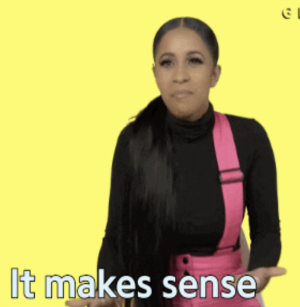The journal asks me to suggest a reviewer for my paper, whom do I propose?
A student of mine asked me this question the other day.
Not all journals ask you to suggest reviewers, but many do. Why?
A scarcity of reviewers
Many journals are short of reviewers. New journals pop up every day. There are more journals now than ever.
Academics are swamped by invitations to review papers. This comes on top of intensifying demands to teach, manage, research and write. ‘No’ becomes the default answer, unless the request comes from a journal that you know, the paper is in your field, and the subject looks intriguing.
For two years I worked as the associate editor of a journal. I spent hours each week trying to find willing reviewers. There were many Nos, and many unanswered emails. I hated it.
Helping the journal find reviewers
Journals ask you to suggest reviewers, because you know better than anyone else who could be interested in your work. For the journal this means more chances of finding willing reviewers.
A good editor of a reputable journal will not make a decision based only on reviewers that you suggest. They will also ask one or more reviewers from their list, and will be on alert to spot a friendly review if it comes from someone that you suggested.
Who should you propose?
When you propose a reviewer to the journal you want:
- Someone credible so that the editor is willing to invite him or her.
- Someone who will say yes if invited. You do not want someone that is super-busy and likely to say no.
- Someone who will be sympathetic, or at least not inimical, to your argument or approach.
- Someone who will give good, critical comments that will help improve your paper.
- Someone whose work and opinion you respect, and who you would like to read and get to know your research.
- Not a friend.
The temptation to suggest a friend or someone very close to your work is high. Resist cutting corners in order to publish a paper that does not deserve yet to be published. The review is meant to strengthen your work - you don't want to publish something that later on you will not be proud of.
In principle if the reviewer is too close to you, he or she should decline the invitation because of possible bias. If he or she doesn't, and if later on the editor realizes that you and the reviewer have a close relation, then both yours and the reviewer’s reputation will suffer.
When I propose reviewers for a paper that I submit, I tend to go for young researchers in my field (junior lecturers or new professors, not the big, senior names that might decline the invitation). I look for people whom I have engaged with and who know my work. I look for a fair but critical evaluation that will help me improve the paper.
When to identify an opposing reviewer?
Some journals give you the option to name reviewers that you don´t want to review your paper. In the blog of the British Ecological Society, Chris Greaves gives some useful tips for identifying non-preferred reviewers.
My own advice is to not identify opposed reviewers, unless absolutely necessary. The only strong reason I see to exclude someone is if your work is focussed on criticizing his or her work (I don't mean a simple critique in the literature review, but a case where your entire paper is directed against the work or thesis of someone else).
We are human, and when someone criticizes us it is hard to remain calm, rise above the circumstances and conduct an unbiased review. Explain this to the editor and ask that the author you criticize is excluded and invited instead to write a response, if and when your paper is accepted. Even if in the end the editor decides to invite this reviewer, you will have registered the concern that his or her review should be treated with caution as it might be biased. The editor will keep this in mind.
Other candidates to exclude are individuals whom you know are possible reviewers and with whom you have had a nasty confrontation in a conference where you presented your paper (yes, surprise-surprise things like this happen in academia).
Caution: if the confrontation was content-related, this is not a reason to exclude someone from the review. Rather you should work to address their concerns, or pre-emptively defend your position against theirs.
If however there was a personal or ideological twist in the conflict, then you should explain this calmly and gently to the editor (you don´t want to sound like a person who gets into academic fights, or someone whose work has stirred controversy for the wrong reasons).
A personal story here: my paper When is it coevolution? was written as a response to an article previously published in the same journal by a group of authors who criticized the work of my mentor at Berkeley, Richard Norgaard. I took it as my job to defend his (our) approach against theirs. I criticized their article strongly.
Before finalizing the article and submitting it to the journal, I shared my response with the authors of the work I was critiquing. An exchange of emails ensued, some more collegial than others. When submitting the article to the journal, I asked the editor to exclude from the review the author I had an email confrontation with. He was not excluded. I saw similar phrases in the review to the ones I had seen in the emails I exchanged with him. But I am pretty sure that the editor treated his review with a grain of salt. In my response, I made a reasoned case why this review was wrong, and why its author was not neutral in the debate. The paper got published.
Happy ending.
Have you ever had to suggest a reviewer to a journal? Leave your comments below!














